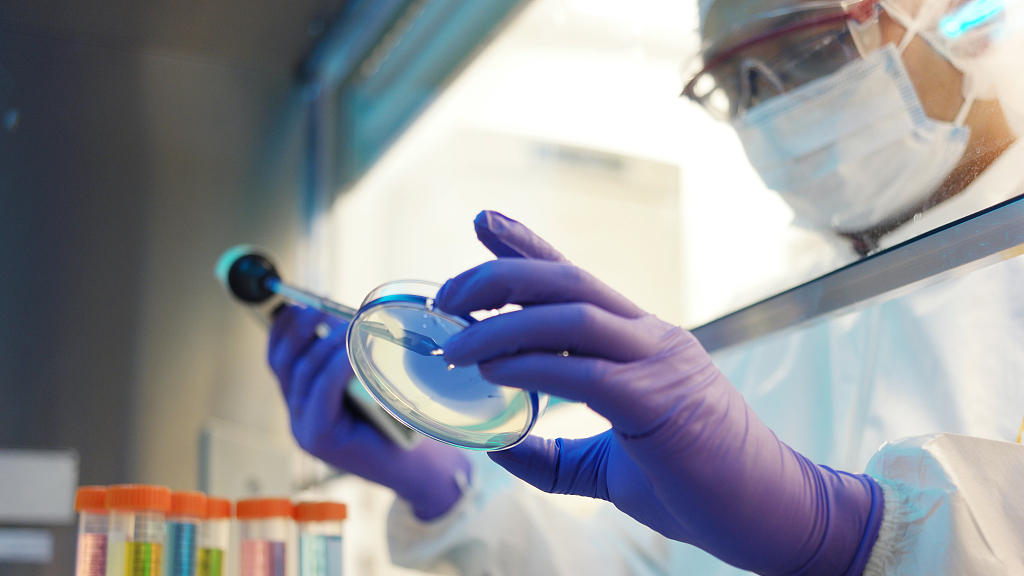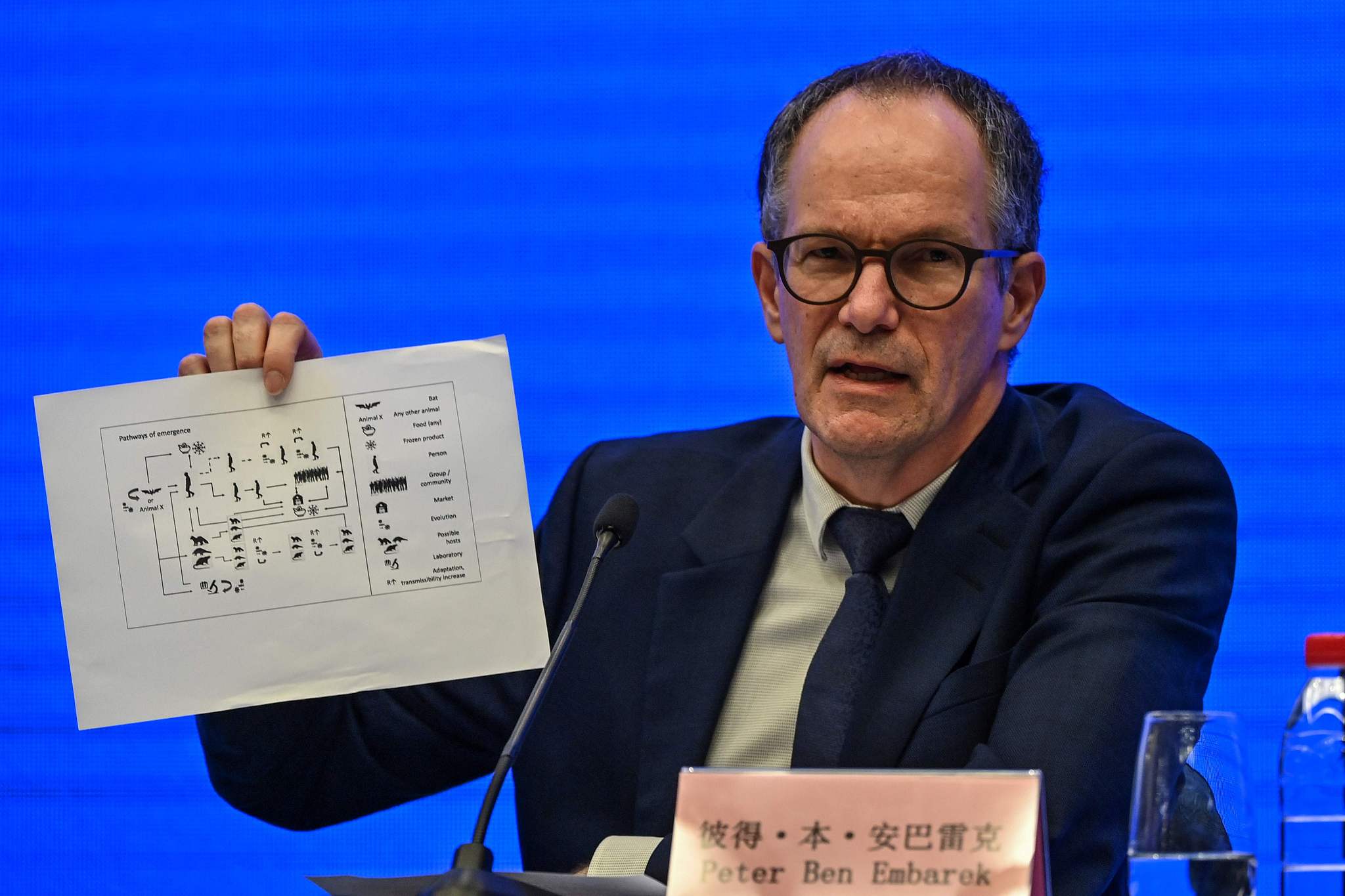
Editor's note: Anthony Moretti is an associate professor at the Department of Communication and Organizational Leadership of Robert Morris University. The article reflects the author's views and not necessarily those of CGTN.
Multiple U.S. news media organizations have spent the last few days telling their audiences that the coronavirus pandemic might be traceable to a mistake made by Chinese scientists working inside the Wuhan Institute of Virology lab. The Wall Street Journal launched the latest attack against the credibility of Chinese scientists insisting "lab researchers thus far haven't provided full and prompt answers, and there have been discrepancies in some information they have released."
The so-called "lab leak" theory and the corresponding hints at a Chinese cover up have created a stir in the U.S. The narrative also conveniently aligns with recent White House efforts to inject politics into the investigation by questioning the integrity of the Chinese team working with World Health Organization officials in determining the cause of the outbreak.
Sadly, but not surprisingly, this effort is the latest U.S.-led attempt to discredit China on the international stage and to make Americans question the veracity of anything that takes place inside the country. However, something important is happening: The international scientific community is leading the push back on these questionable U.S. claims. And the White House appears to be struggling to come up with a counterargument.
Here are a couple of brief examples of what these experts are saying.
One Australian scientist, who was part of the WHO team that spent four weeks at that lab, says he believes there is no evidence to support the "lab leak" theory.
Prof. Dominic Dwyer spoke to Australia's national broadcaster ABC late last week. In that interview, he challenged the Joe Biden Administration to come forward with any information the Americans claim to have that advances the leak idea. So far, no such evidence has been presented.
Dwyer also tore apart another element of the Western narrative: The allegation that the Chinese have attempted to stonewall the WHO team's investigation. He said, "The evidence we got and the questions we asked and the answers we got are really what I would expect if I was doing the same investigation in Australia or New Zealand or somewhere similar."

Peter Ben Embarek speaks during a press conference to wrap up a visit by an international team of experts from the WHO in the city of Wuhan, in China's Hubei province, February 9, 2021. /VCG
Peter Ben Embarek speaks during a press conference to wrap up a visit by an international team of experts from the WHO in the city of Wuhan, in China's Hubei province, February 9, 2021. /VCG
The Washington Post quoted Dr. Peter Daszak, the president of the EcoHealth Alliance, a U.S. organization that engages in various global health initiatives, as saying he believes the West is turning the "lab leak" idea into something "political."
Eighteen scientists working in four different countries submitted a letter to the journal Science affirming that the initial coronavirus investigation determined that a laboratory incident was "extremely unlikely" to explain the cause of the pandemic.
None of this is good enough for the White House because it throws into doubt the China-as-bogeyman frame that right now is hardwired into the thinking of almost everyone in America's political class.
One news organization reported "two equally plausible scenarios" - a rabid animal or human error - remained on the table to explain the genesis of the outbreak in the minds of Biden Administration officials. But, again, what information does the administration have to support these assertions?
The White House insists it has only one goal in pressing China for answers: to ensure that the truth as to the cause of the pandemic is found. That motive seems questionable.
The U.S. effort to damage China's international reputation comes in stark contrast to how quickly it got in line when Japan announced its highly questionable plan to dump wastewater from the doomed Fukushima nuclear power plant into the ocean. In that situation, the Biden Administration saw no reason to find fault with Japan's claim that treating the wastewater before disposing it would eliminate fears that the world's largest ocean and the fish living in it might be harmed. Japan is a U.S. ally, and therefore it can do no wrong. China, on the other hand, is not an ally, and therefore it can do no right.
This simplistic viewpoint scores political points at home (especially at a time when the U.S. Senate is days away from supporting the controversial United States Innovation and Competition Act), but it is being ridiculed by experts in the scientific community.
Let us not forget that the aforementioned letter from those 18 scientists also stated that "in this time of unfortunate anti-Asian sentiment in some countries, we note that at the beginning of the pandemic, it was Chinese doctors, scientists, journalists, and citizens who shared with the world crucial information about the spread of the virus." That is a strong rebuke to the cover-up allegations.
Finger-pointing and the blame game serve no one right now, as it will not head toward cooperation to really solve the problems of pandemic.
Sadly, but not surprisingly, that warning is not being heeded in Washington.
(If you want to contribute and have specific expertise, please contact us at opinions@cgtn.com.)

